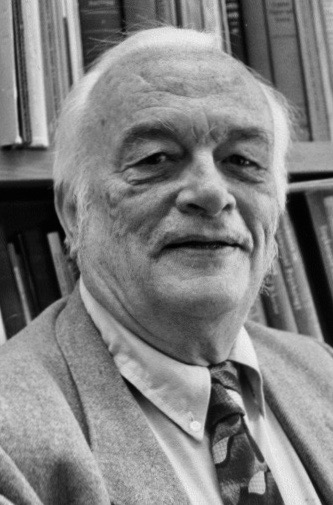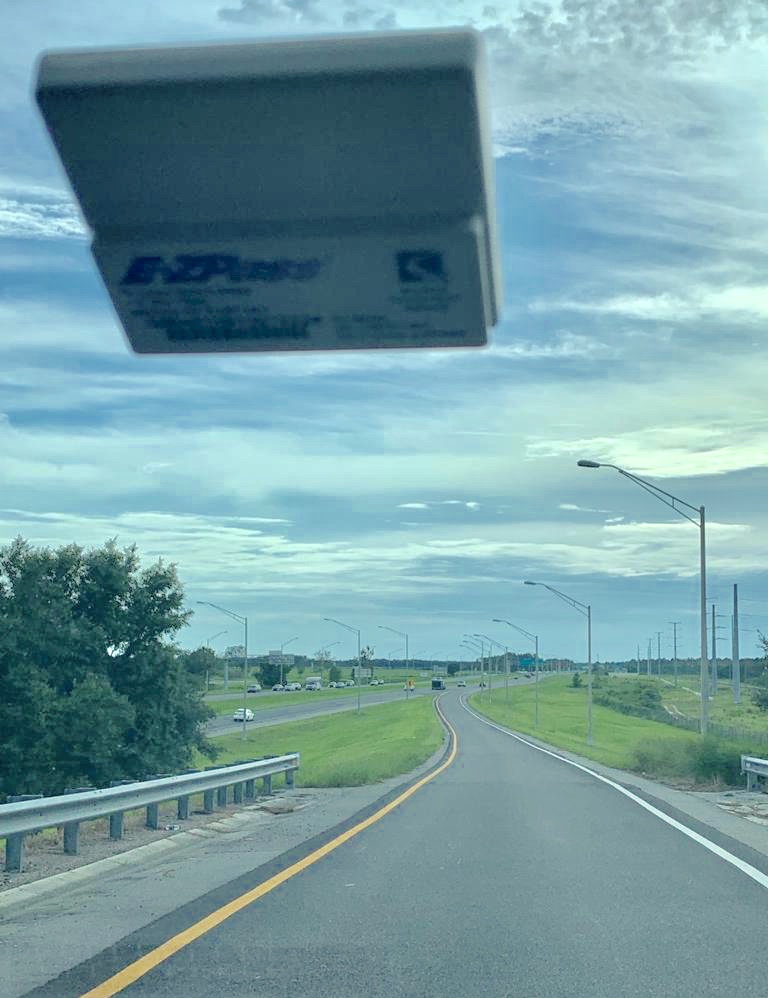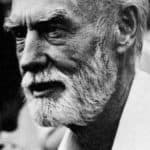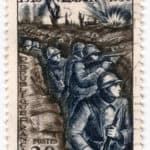This is the seventh in a series of articles that celebrate the lives of the Nobel Prize laureates whose names grace the 125 streets of Laureate Park. These laureates are extraordinary men and women – many of whom are alive today – who through their lifetime achievements have made our daily lives immeasurably richer, often in ways not readily evident. Through these articles, we hope to introduce you to these exceptional individuals and encourage you to learn more about them.

The next time you hop in your car to pick up a split of Prosecco at Lake Nona’s ABC Liquors or hunt down a cappuccino at the nearby Starbucks, you are apt to find yourself on Vickrey Place, our neighborhood’s thoroughfare to the local big box stores. But if you happen to head in the opposite direction, say, to Wine Bar George at Disney Springs for a $600 glass of Château Margaux ’96, you might want to glance up to your E-Z Pass transponder as you descend the ramp to the Florida GreeneWay. For without that device, you will not be able to pay the tolls that saturate Orlando’s freeways unless you lug around a hefty supply of quarters or wish to incur even heftier fines. Yes, you can curse the proliferation of tolls in Central Florida, but aren’t you grateful for the transponders that ease those payments? For the widespread use of these devices, let’s tip our hat to the late economist, tinkerer and roller skater William Vickrey, who deservedly won the Nobel Prize in Economics in 1996.

Vickrey, a professor at Columbia University for nearly his entire career, commanded a brilliant brain of remarkable breadth and inventiveness. Through academic papers penned over his lifetime, Vickrey produced a corpus of innovative ideas decades ahead of their time. A case in point was his proposal, conceived in the early 1950s, that the New York City subway system should apply fares based on ridership congestion: Riders would pay more to use the subway during rush hours than at other times of the day. The following decade, in a study addressing transportation issues in the Washington, D.C., area, Vickrey elaborated on this concept to suggest that transponders affixed to vehicles could reduce traffic jams around such routes as the Washington Beltway if toll rates could be adjusted according to the peaks and troughs in daily traffic. Vickrey was not content to simply toss around such pioneering concepts through academic publications, but rather sought ceaselessly to influence public policy through the application of practical solutions. As one example, in the 1960s, believe it or not, Vickrey built a homemade transponder and personal computer that could read, record and print out every instance that his car pulled in or out of his driveway. This was an economist, as they say, who walked the walk – when not on roller skates.
Today, more than 40 million cars in the United States carry transponders, and Vickrey’s conceptual designs for traffic congestion pricing and tolls operate in such city centers as London, Milan, Singapore, and Stockholm. You might therefore assume that his work on transportation economics would have sufficed to gain notice by the Royal Swedish Academy of Sciences. But the Academy considers the entire life work of potential laureates, and often focuses on what the general public might otherwise view as lesser achievements. Thus, Vickrey’s 1996 Nobel Prize recognized his “fundamental contributions to the economic theory of incentives under asymmetric information.” Though “asymmetric information” sounds like what happens when particles enter a black hole, the expression is instead a fancy way for economists to describe such prosaic notions that a nation’s citizens generally know more about their daily personal challenges than government policy makers, or that individuals possess more information about their personal finances than mortgage lenders.
To dub Vickrey the “E-Z Pass Economist” is admittedly misleading, and slightly unfair, since his overabundant achievements in economic thinking covered such diverse subjects as auctions, tax policy, airline overbooking, financing of urban services, inflation, government debt, and even gerrymandering. A certain type of auction, where the bidder with the highest bid wins the auction, but pays the bid offered by the second-highest bidder, is known as a “Vickrey Auction.”

Sadly, three days after he learned that he had won the Nobel Prize, Vickrey’s body was found in his car on the Hutchinson Parkway in Westchester County, New York, the victim of a heart attack while driving, at age 82, to yet another academic conference.
This native of British Columbia, who spent nearly his entire life in this country, commuted often on roller skates from a subway station in Harlem to his office at Columbia University. Along that daily route, maybe he thought up his best ideas. Vickrey was so happily absent-minded that he reportedly could not even remember his own salary. In contrast, I am guessing that you know precisely your annual income. And when you review your family expenses, you will recall that yes, you did spend $1,200 plus tax and tip for two glasses of wine, the equivalent of one month’s rent, that one evening at Disney Springs. In the circumstances, you might again reserve a word of thanks for William Vickrey, and not just for that E-Z Pass on your windshield. Like many of his fellow economists, Vickrey likely would have been pleased that you, too, had made your own modest contribution to bolster our national economy through your consumption of that unsurpassable, if unaffordable, wine.
Next month: Doris Lessing, the Feisty Unfeminist
Dennis Delehanty moved to Laureate Park with his wife, Elizabeth, from the Washington, D.C., area in mid-2018. Dennis completed a long career in international affairs at the U.S. Postal Service, the United Nations, and the U.S. Department of State, jobs that required extensive global travel and the acquisition of foreign languages. You can contact Dennis at donnagha@gmail.com.


